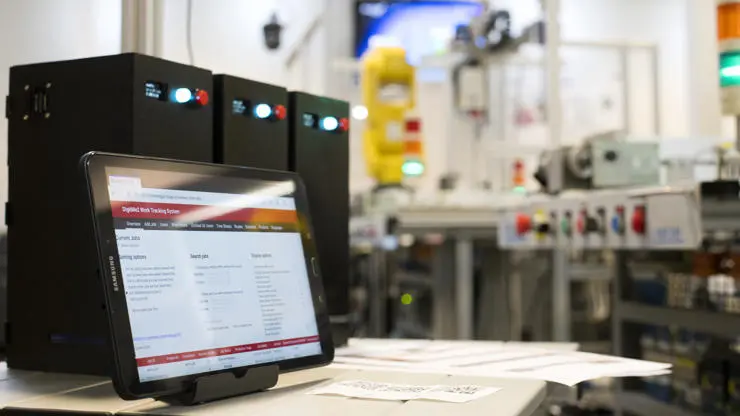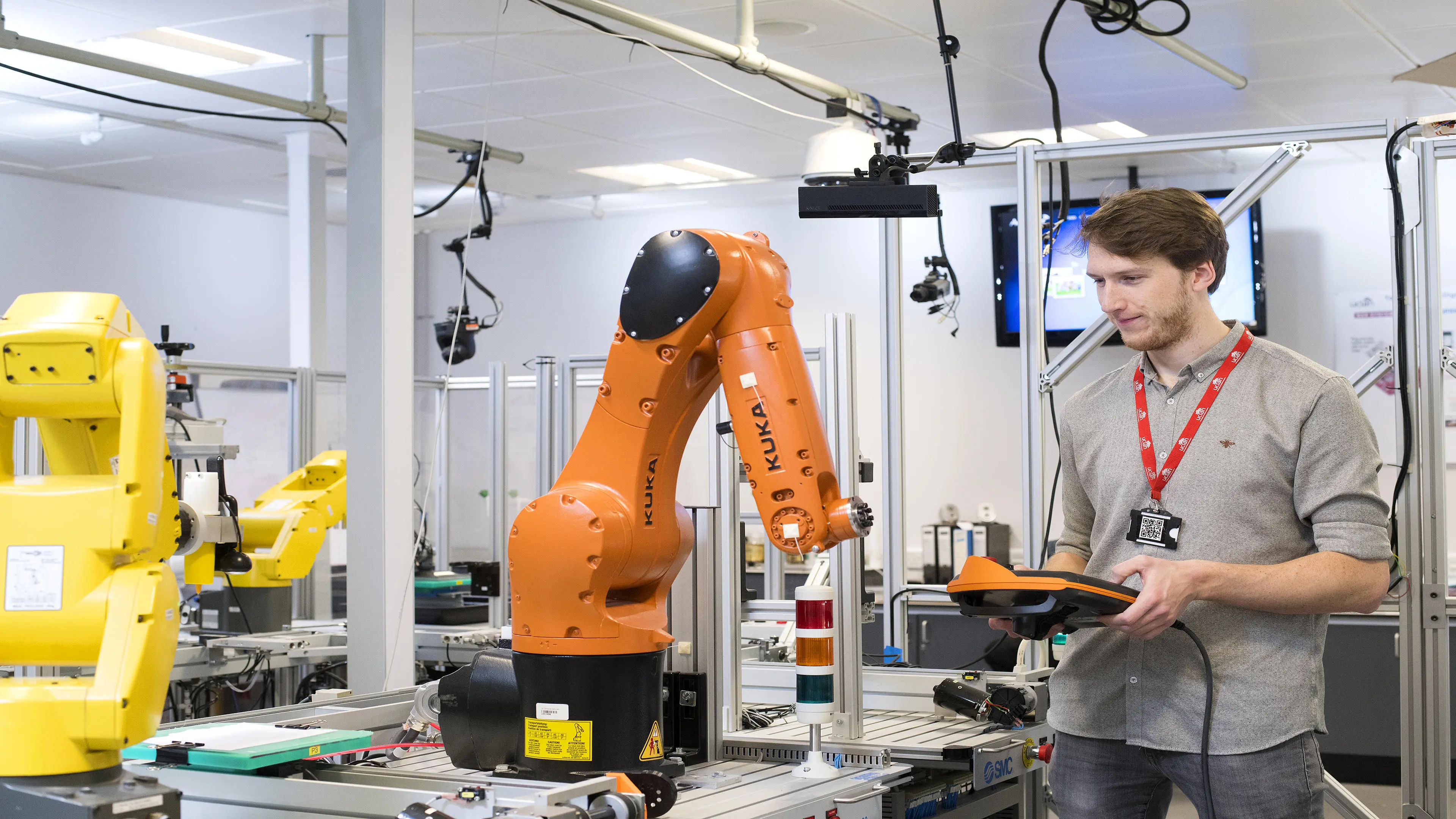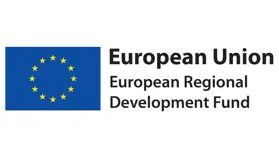The DigitME2 project helped SME manufacturing companies based in Lancashire to grow their business and become more efficient. The team introduced Industry 4.0 based digital technologies to improve manufacturing processes.
Using a range of open-source software solutions developed in-house, DigitME2 offered a fully funded, low risk route for SMEs to introduce digital manufacturing through production system software, Internet of Things (IoT) data visualisation and data analytics. Funded by the European Regional Development Fund (ERDF) and delivered by the University of Central Lancashire (UCLan), this project ran from August 2016 to June 2023.
DigitME2 has worked with 123 beneficiaries ranging from individuals to companies. They gained access to DigitME2 software that provided a solution for monitoring production times, machine usage, inventory control and environmental data (using IoT).
Companies, such as Mike England Timber Co. Ltd., reaped the benefits. Jeanette Corner praised DigitME2's support: "Monitoring time management and providing a method of costing each process/job has been a huge benefit, complementing our enterprise resource planning (ERP) platform."
Kelly Aitken, who was part of the DigitME2 team that supported Innova Solutions, an eco-friendly adhesives company, said: "The adoption of the DigitME2 Process Time Tracker software has allowed Innova to capture accurate production timing data with very low deployment costs and minimal staff training time."
"Monitoring time management and providing a method of costing each process/job has been a huge benefit, complementing our enterprise resource planning (ERP) platform"
— Jeanette Corner, Mike England
The beneficiaries used DigitME2 software to assess their individual requirements for data collection and data visualisation before buying high-cost commercial software solutions. This helped to de-risk the introduction of digital manufacturing and to demonstrate the potential gains over a much shorter project time. Once the beneficiary determined the required software solutions, they had the choice to continue to utilise the DigitME2 software or to move to a supported commercial product.
DigitME2 provided companies with a 12-hour technology assessment to map out their manufacturing process and identify where technology can assist. A further 140 hours was available to provide a bespoke feasibility study, taking recommendations from the technology assessment, to prove that new technologies can provide added value to the business.
Initially, the DigitME2 project worked with SMEs on bespoke projects to introduce a wide range of digital manufacturing technologies. However, this highlighted problems with a lack of skilled resources within SMEs and a resistance to changing existing working practices without confirmation that the changes would be beneficial. It became clear that there was a need to provide software solutions that did not require significant resources from SMEs.

Amidst the COVID-19 pandemic, DigitME2 intensified its efforts and produced a range of open-source software solutions, enabling remote implementation and support. The project then offered support to help companies begin the collection and utilisation of production data throughout the assist.
To be eligible for support, manufacturing companies needed to be based in companies in Lancashire and fall into the SME category. This included companies with fewer than 250 employees.
Whilst this project has closed, the University actively supports regional businesses. Find out more through our Enterprise and Engagement Unit who will review your enquiry and signpost you to the most appropriate area of continuing support.
Related case studies
Timber specialist uses digital technology to monitor production in real-time
Mike England Timber Co Ltd. has adopted DigitME2's manufacturing software solutions to enhance their production visibility and reduce production costs.
Friday 17 March 2023Eco-friendly adhesives company improves efficiencies with DigitME2
Innova have reaped the benefits of becoming more efficient thanks to open source, manufacturing solutions by our DigitME2 Project.
Wednesday 15 March 2023Cup of success for printing company
The Printed Cup Company has benefitted from manufacturing support from the DigitME2 project.
Sunday 1 December 2019Cabinet maker’s success enhanced by digital uplift
Cabinet manufacturer Basically Trade is boosting productivity and safeguarding jobs thanks to our DigitME2 project.
Friday 1 November 2019


